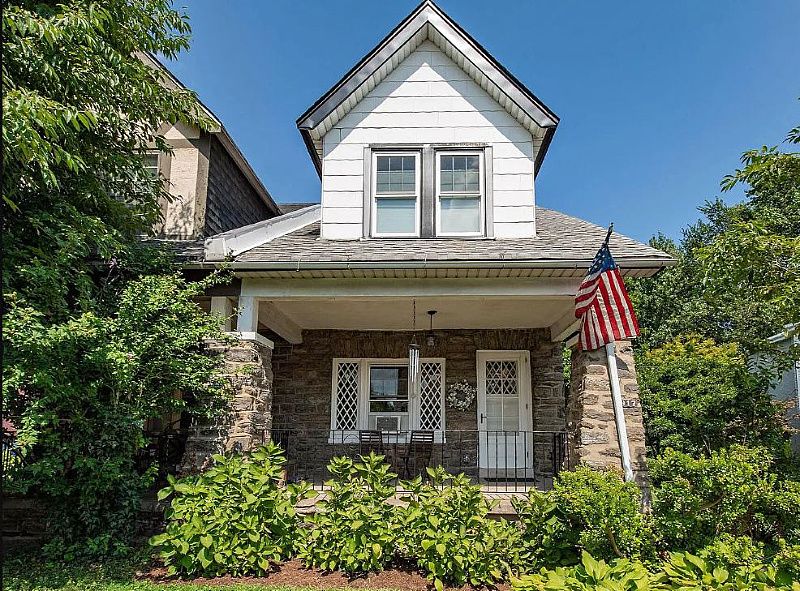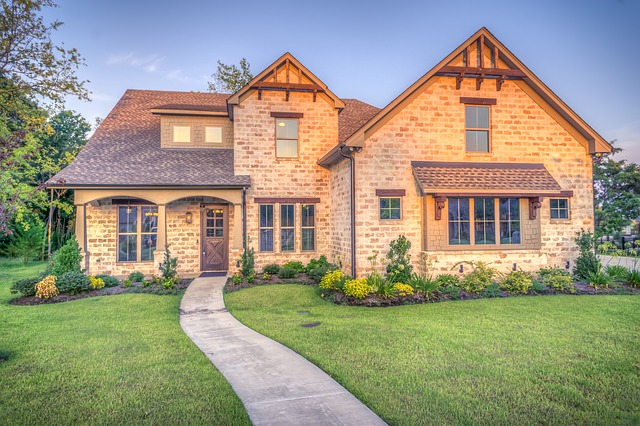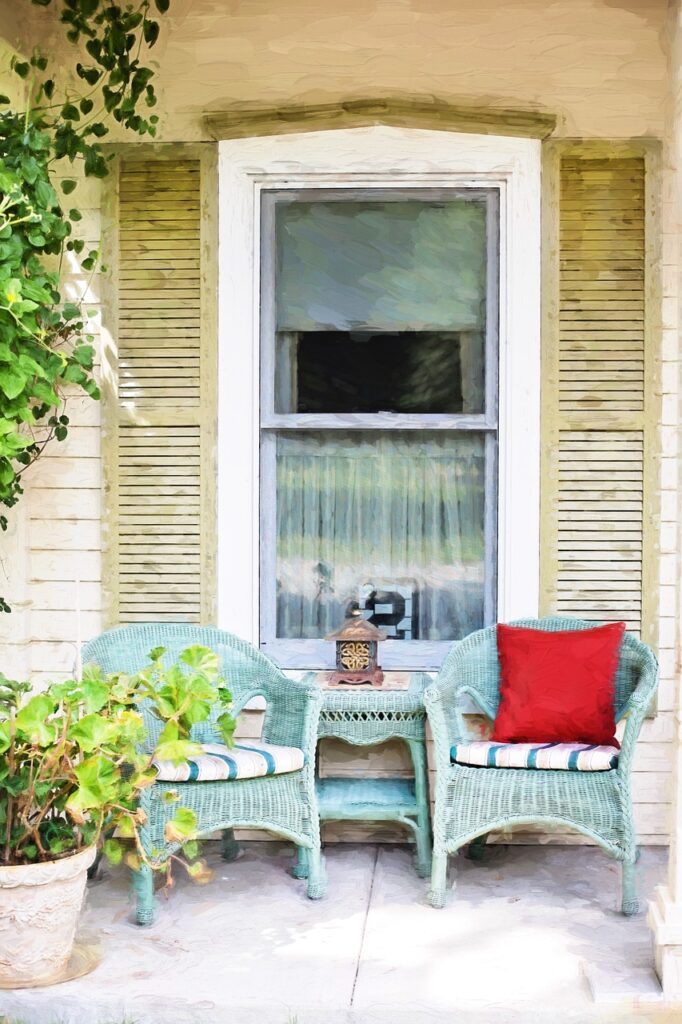Wonder how to buy the perfect home? Here are the tips we used when buying the house that we love. We have no regrets!

I still remember that feeling of excitement mixed with a hint of apprehension that I had when we met with the realtor to look for our first home. It felt like such a monumental moment. I mean, WE WERE BUYING A HOUSE, you all! And spending more than I had ever spent on anything before!
I also remember the agony of looking at houses both times that we bought one and trying to figure out how to buy the perfect home for us. How would we know if it was “the one”? There’s so much to consider and think about and I sometimes worried that we wouldn’t know which house was the right house.
But you know what? Both times, we just knew that the house that we bought was the perfect place for us the first time we saw it. And that was largely because of the tips that I’m sharing here with you. Hopefully, they’ll help you know how to buy the perfect home, too!

How to Buy the Perfect Home and Have No Regrets
1. Decide Your Budget and Stick to It
Before you even begin looking at houses, it’s incredibly important that you figure out how much you can afford to spend on a house. And then it’s even more important that you stick with your budget and don’t cave when you see gorgeous, “perfect” places that are outside your price range.
Because you will see those homes and they will pull at your emotions and make you want to buy more house than you can afford!
When we were looking to relocate to Philadelphia, we intentionally set our budget for a house at less than the max amount that we could afford. We did this for several reasons.
For one thing, we wanted to have a little bit of wiggle room in case we had an unexpected home-related expense. We also didn’t want to live so tight that we constantly felt stressed out about our finances.
2. Consider Other Potential Expenses
It’s good to also think about other potential expenses that will result from buying your new home. The cost of things like homeowner’s insurance and real estate taxes can add up quickly!
(Real estate taxes especially can vary a lot depending on location and if you are considering two different areas, it’s wise to check what the taxes are for each one. We found Zillow to be a helpful tool.)
Are there any improvements you’ll want to make on the property? Remodel work that will need to be done? Any appliances that you’ll need to purchase? A pool that will need upkeep?
What about shades and/or curtains for the windows as well as new furniture and decor? Plan for those and estimate what you think you’ll spend and count that into the cost of your house so that you don’t spend more than you can afford!

3. Figure Out Your Non-Negotiables
Looking at houses can quickly become overwhelming and often discouraging too, at least if you are on a tight budget. To make the whole process easier, take some time to define what you want and need in a house. What are the things that are non-negotiable to you?
When we bought our first house, we were newly married with little money. Since we knew that we hoped to have children before too long, one of our non-negotiables was to find a house that we could grow into and easily have room to raise small children.
We also wanted to be on the east side of town so that we would be closer to my husband’s job, our church and most of our friends. And because the kitchen is my happy place, finding one with a good layout was a high priority too.
When we bought our Philly house, our four main non-negotiables were to find a place that had a nice size yard for the kids to play in, a decent size living room (we were tired of trying to host in the small one at our first house!), a kitchen with a good layout and a location that was close to the train since my husband would be using it to commute.
Figuring out our non-negotiables ahead of time made it so much easier to determine whether a house was right for us.
And even though it took way longer than we had hoped and we almost caved a time or two on houses that were “almost” perfect, we did end up with one that had all of the things that we were looking for!
4. If Possible, Visit Twice Before Putting in an Offer
When you first look at a house, there is so much to take in that you often just notice the basic, major features and often miss the smaller details. Visiting a second time, you know more what to expect and what you are looking for and it is super helpful!
I’ll be honest, we only looked at our first house one time and it ended up being okay. But, visiting twice saved us a lot of heartache when we were looking for our Philly house.
There was one house in particular that we really liked. It was a bit higher priced than we had hoped to pay, but it had so many things going for it that we thought it might be worth the extra money. However, before we put in an offer, we decided to go look at it again.
The second time around we noticed things that we hadn’t the first time- basically, we discovered that the house was in more disrepair than we had realized and the cost of fixing things up would have put us way over our budget!
We also came very close to putting in an offer on another house. But on our second visit, we discovered that what we originally thought was just dirty walls, was actually black mold! We were beyond grateful that we took the time for a second visit!
5. Remember Neighborhood and Location are Important
In one sense, when you buy a house, you are also buying a neighborhood. When we were looking for houses, we often drove around the area and looked at the nearby houses to get a feel for what kind of people lived there and how much they cared about their places.
Since Philly was 1 ½ hrs. from our previous house, it was a little difficult to always have lots of extra time when we were meeting with our realtor. So, sometimes we’d use Google Maps instead and go to the street view and look at neighborhoods that way.
Another thing we considered was how far the houses we looked at were from public transportation since we’d be using that regularly. And because grocery stores are kind of a key part of living frugally for us, we also checked to see how far we were from the major ones.
Two other things that were important to us were how close the nearest nice park was (our kids love going to the park!) and what the local school district was like. (We were homeschooling, but being in a good school district can help resell value, so we still considered it.)

6. Decide How You Feel About Outdoor Space
Many people are in love with the idea of having a yard and garden but forget that both things take a lot of time to maintain. When you are looking at houses, take time to think through how much upkeep the yard and outdoor space will take.
Our first home had a very tiny city yard and we loved it! It took us all of 5 minutes to mow.
There were a few flower beds and bushes that took a bit more time to take care of, but overall, we needed to spend very little time on yard work. Neither of us loves that kind of thing, and frankly, we really didn’t have the time or energy to take care of anything bigger.
Remember though how one of our non-negotiables for our Philly house was a big yard? We don’t do much screen time and instead encourage creative play, and since our kids are older now, a larger yard felt necessary.
It has been challenging sometimes to find the time to take care of all of our outdoor space, especially in the fall when all the leaves from our 3 huge backyard trees needed to be taken care of. But we learned to readjust things and by adding in some outdoor chores to the kid’s chores list, we’ve always been able to get it done.
7. Look for Potential Problems
This was an area that I largely let my husband take care of, and I was so thankful for his knowledge and expertise!
Some of the things that he looked for were potential water issues/leaks, old electrical wiring, old heating/cooling systems and water heaters, the condition of the plumbing and roofing and whether the exterior walls seemed in good shape. There were several houses we looked at that he noticed major problems that would be too big of an issue for us to deal with and I know that it saved us a lot of headaches!
If you aren’t blessed with a spouse that is savvy about these things and are like me and don’t know really what all to look for, it’s well worth spending the money on a home inspection before you finalize your offer on a home!
8. Be Willing to Be Flexible
As much as I’m a fan of figuring out your non-negotiables, I also think it’s wise to be willing to rethink how those non-negotiables might look. And you might need to give up some of the less important things that you had hoped to find too.
For instance, I mentioned that having a kitchen with a good layout was a non-negotiable for me. However, that ended up looking a bit different than I had initially thought it would.
The house that we bought had a tiny kitchen with very little counter space. The back door also enters directly into the kitchen, which I didn’t love.
But, we figured the cost of a kitchen remodel into our buying price and ended up redoing the kitchen to make it more user-friendly with more counter space. The layout still isn’t my dream kitchen, but it definitely feels doable.
Similarly, I really had hoped that I could have a first-floor laundry as we did at our first house. So I was a bit disappointed that the house we bought ended up having the laundry in the basement.
Thankfully though, it’s not too dingy and there’s also a nice, big laundry sink. And in the scheme of things? Well, it was worth the sacrifice to me since it meant that we didn’t buy more house than we could afford!


Steele
I like that you said that you should visit a house at least twice before putting in an offer to buy it. My boyfriend and I are looking for a home for sale right now. I think that it would be smart to take it kind of slow since it is such a big decision, and getting the right house would be so worth the wait.
ThriftyFrugalMom
For sure! We haven’t ever regretted a second visit.